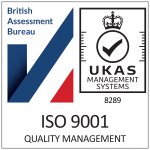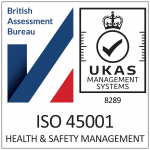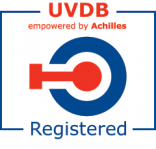Appointed Person
This course is aimed at anyone who is required to plan safe systems of work using lifting equipment. It is recommended that prior to attending this course individuals should have some experience of working with lifting equipment, especially mobile cranes.
Call today to discuss which scheme best suits your requirements.
Call today to discuss which scheme best suits your requirements.
Product Description
This course is aimed at anyone who is required to plan safe systems of work using lifting equipment. It is recommended that prior to attending this course individuals should have some experience of working with lifting equipment, especially mobile cranes.
Call today to discuss which scheme best suits your requirements.
Call today to discuss which scheme best suits your requirements.
Product Specification
Lifting operations can often put people at great risk of injury, as well as incurring great costs when they go wrong. It is therefore important to properly resource, plan and organise lifting operations so they are carried out in a safe manner. Each of these elements requires a person or people with sufficient competence to be involved at each step. These people should have sufficient theoretical and practical knowledge of the work and equipment in question, as well as the requirements of the law, to be able to do this properly. For complex and high-risk operations, the planning and organisation should be extensive and meticulous.
Product Features
Basic Training 4 Days/Refresher Training 2 Days
Legislation ‐ LOLER, PUWER, HASAWA
Codes of practice ‐ BS7121
Roles and responsibilities of personnel involved with lifting operations
Crane appreciation ‐ crane types, capabilities and limitations
Duty charts
Crane terminology
Documentation and certification for lifting equipment and lifting accessories
Crane stability/ground conditions
Safe Load Indicators (SLI) and Safe Working Loads (SWL)
Lifting accessories
Types of accessories and use
Slinging techniques
Down rating of accessories
Sling angles
Communications
Planning a lifting operation
Writing a risk assessment (end test)
Writing a method statement (end test)
Legislation ‐ LOLER, PUWER, HASAWA
Codes of practice ‐ BS7121
Roles and responsibilities of personnel involved with lifting operations
Crane appreciation ‐ crane types, capabilities and limitations
Duty charts
Crane terminology
Documentation and certification for lifting equipment and lifting accessories
Crane stability/ground conditions
Safe Load Indicators (SLI) and Safe Working Loads (SWL)
Lifting accessories
Types of accessories and use
Slinging techniques
Down rating of accessories
Sling angles
Communications
Planning a lifting operation
Writing a risk assessment (end test)
Writing a method statement (end test)









